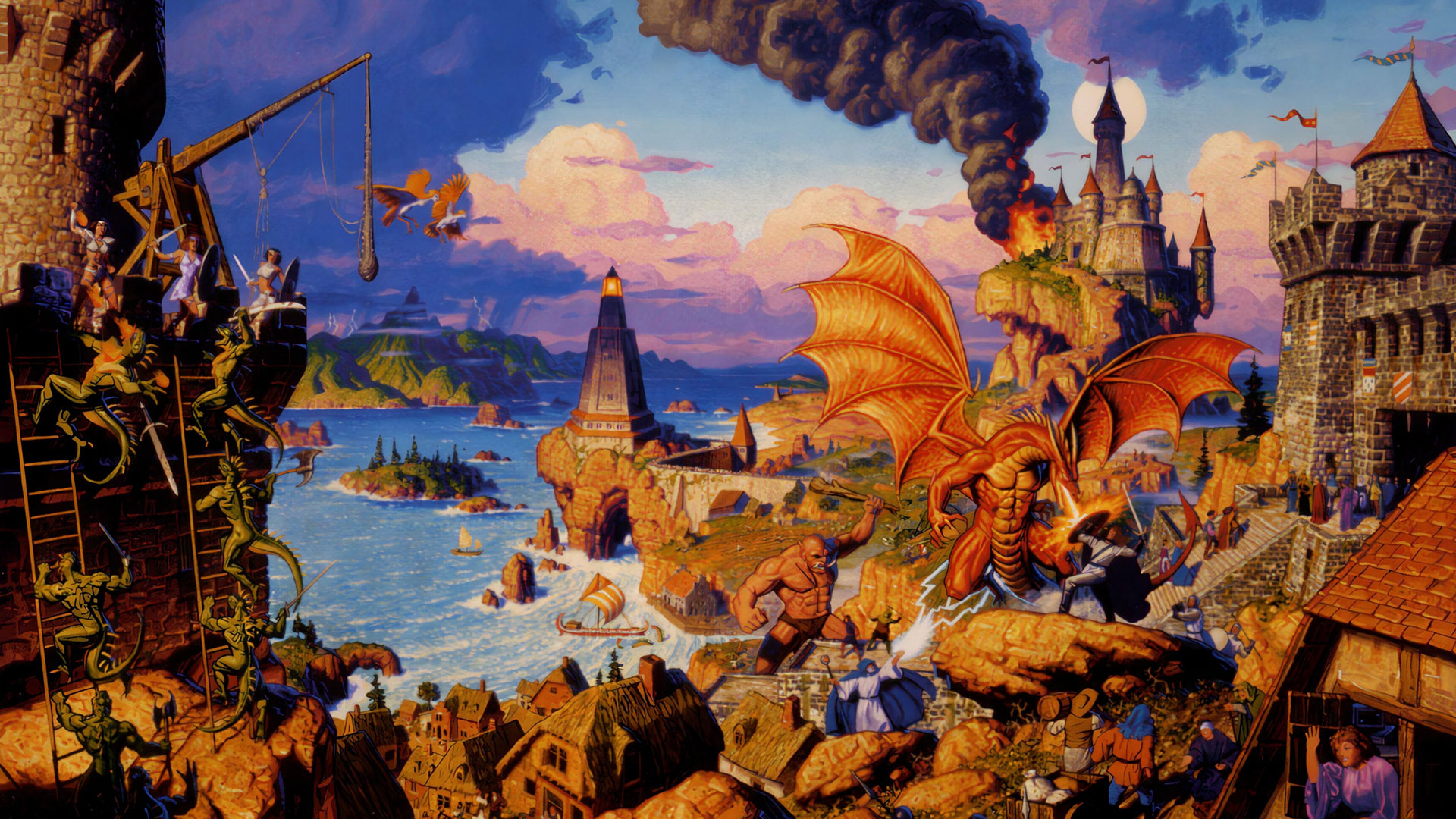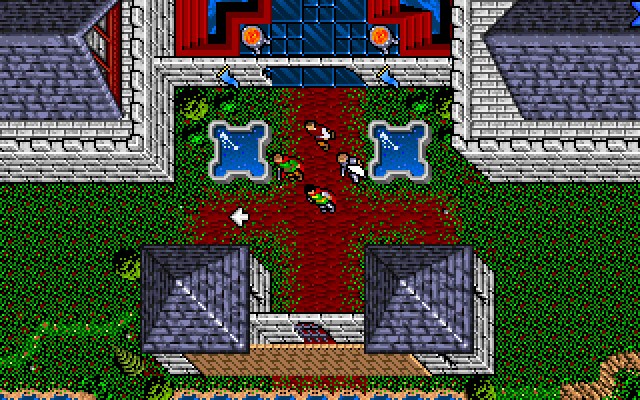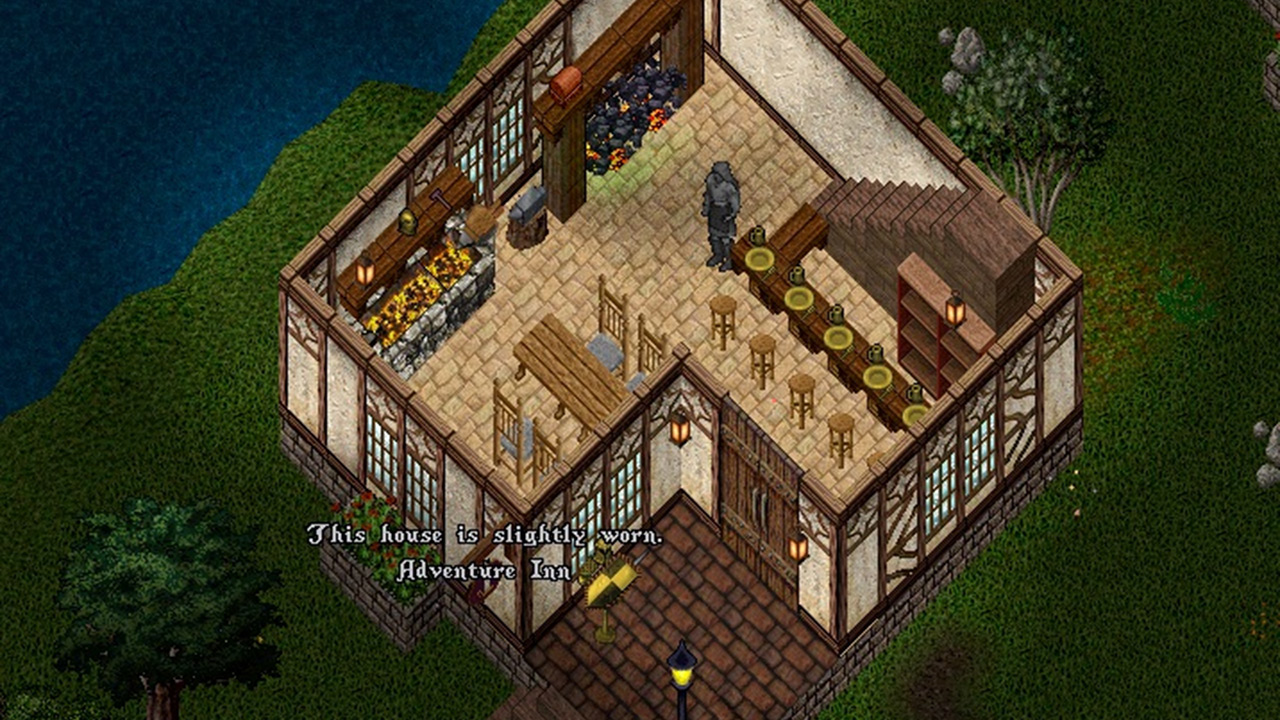What the Ultima series means to me

One of my earliest childhood memories, and one of the few positive memories I have of my dad (a malignant narcissist and an alcoholic who drank himself to death) was my father playing Ultima 4. Well, not so much “playing” as mapping out the world. The living room floor would be covered in graph paper that he meticulously filled in with all the tiles in the game.
I remember playing Ultima 4, 5, 6, and 7 as a kid. I wasn’t good at playing them, mind you. I spent most of my time in Ultima 6 telling Iolo “spam spam spam humbug,” the iddqd equivalent for RPG nerds. I’d then pick a spot in the world and spend inordinate amounts of time painstakingly moving furniture from halfway across the map into a house to make it mine. I don’t think I ever completed a single Ultima game, really, but it was great anyway.

The Ultima games were my first taste of virtual worlds, and I loved them so much they were the biggest influence that started me down the path of game development. There were other influences of course, but I think it’s fair to say it all started with Ultima.
Later came Ultima Online. It’s hard to explain UO to people who’ve never experienced that trimmed branch of the MMO evolutionary tree. It’s hard to explain to people who are used to theme parks with level grinds and endgame raiding what Ultima Online was like, because Ultima Online (like the other games in the Ultima series) was more of a virtual world. You got 700 points to distribute across a laundry list of skills, in whatever ad hoc way you pleased, and once you got your points distributed the way you wanted you were done. You could lower a skill to raise others at that point, but those 700 points were all you got.
Stats worked the same way although there was a different point maximum you could have that I can’t remember now. They were also trivially simple to raise just by using skills, which also improved as you used them successfully. All of this meant that for builds with skills that were simple to raise, which was most skills in the game, you could “finish” your build in anywhere from a single day to a week.
“So then what did you do?” I hear you ask. Well, it certainly wasn’t grind for loot. Equipment like swords, armor, and so on came in three qualities in Ultima Online: poor, regular, and masterwork. Any masterwork longsword was completely fungible with any other longsword. This worked great because on death all your gear stayed with your corpse, and you’d have to run to a healer as a ghost to get resurrected, then run back with absolutely nothing on you and grab your gear. Often, like in Minecraft, your corpse would just despawn, taking all the gear with you.
But that wasn’t an issue! Most people just used masterwork gear which was ubiquitous and available from player vendors across the game (more on those later) so often the easiest way to deal with death was just to go home and gear up with another set of identical equipment you’d prepped for just such a scenario. There were magical items, but they weren’t often more powerful than masterwork items, and those that were were exceedingly rare and expensive, and still not that much more powerful, so mostly nobody really used them.
Okay, so what else did you do? Dungeons? Well, there’s nothing to get in dungeons besides gold and maybe the occasional magical item which you’d probably sell to a rich player. There’s no experience points, no levels, so sure, you could go to a dungeon and kill monsters for gold, but that’s all you were going to get out of that.

No, once you finished your build people would just… live in the world. In Ultima Online there was player housing, but it wasn’t instanced, houses just dotted the landscape of the world every player shared. While this was very immersive (except for the suburban sprawl that blighted all of the world map in the game) it obviously also immediately caused housing shortages which meant that players needed lots of gold to even buy a little shack.
But given that the main activity in Ultima Online was the accumulation of wealth, eventually most serious players would be able to afford a house of some kind or another. Then they’d engage in trade with other players, decorate their house, hang out and chill with their local communities, or craft. Given there was a constant churn of items, crafting was very popular, and you could even set up your house like a mall full of NPC vendors to sell your stuff to other players.
So the “gameplay” of Ultima Online was mostly just life in a virtual world. Hard to imagine if all you’ve ever known is the perpetual content treadmill of post World of Warcraft MMORPGs.
Eventually they did ruin UO by shoehorning a loot grind into it, which never worked particularly well as you might imagine. World of Warcraft was here and everyone wanted to eat its lunch, including Origin Systems Inc. They did not, of course, eat WoW’s lunch, but instead lost most of their most engaged players and the game became a shadow of its former self.
The Ultima games and Ultima Online particularly were the closest I ever got to living in a virtual world. It’s something that grabbed my imagination as a child and has persisted for 30 years. That’s why I’m always talking about making an Ultima-like game, or an Ultima Online style MMORPG, because that’s why I got into game development: to make virtual worlds.
I haven’t really managed to do that yet in my career as a game developer. But I hope to, some day.